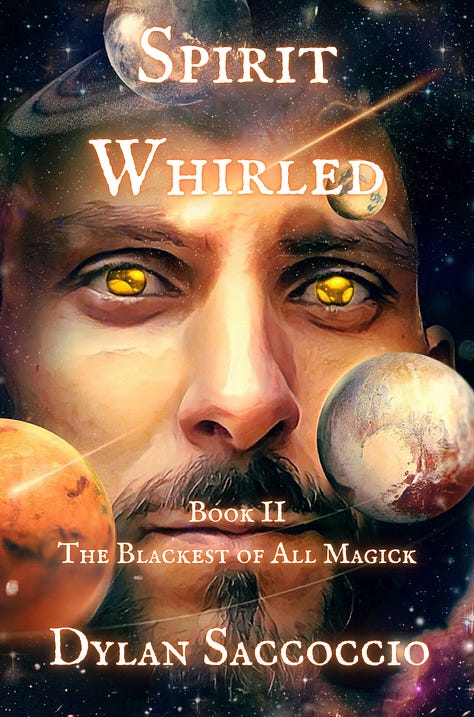Reminder: All articles can be listened to through the Substack app for those who don’t prefer to read. Also, if you have questions or ideas you’d like me to address about this article, feel free to post them in the Substack app. If I can, I’ll address it in a livestream on Substack.
The following is Jacob Bryant’s claim about the alleged sons of Chus, or Cush, and the Greek interpretation of them, a subject that I am loathe to entertain because it’s all misconstrued nonsense based on fraud and fables known as Mosaic history. However, I’m sharing it because even misconstrued nonsense is worth addressing in order to show how the historical record was constructed.
He wrote (Analys. Anc. Myth. pp. 353-54.), “Among different branches of the great Amonian family, which spread themselves abroad, the sons of Chus were the most considerable; and at the same time the most enterprising. They got access into countries widely distant; where they may be traced under different denominations, but more particularly by their family title. This we might expect the Greeks to have rendered Chusos, and to have named the people Χυσαιοι, Chusæi. But by a fatal misprision they uniformly changed these terms to words more familiar to their ear, and rendered them Χρυσος (Chrysos), and Χρυσειος (Chryseios), as if they had a reference to gold. (Cush/Chus does have a reference to gold, given that it pertains to the son, who begat Nimrod, the mighty hunter before the lord, the sun in Sagittarius, a mighty hunter, when another mighty hunter rules the skies: Orion, reckoning the end of autumn and the beginning of winter, whose mighty kingdom was Babylon.) I have before mentioned the various parts of the world, where the Amonians settled; and especially this branch of that family. Their most considerable colonies westward were in Ionia, and Hellas; and about Cuma, and Liguria in Italy; and upon the coast of Iberia in Spain. (I disagree. Their home was in Cuma and Liguria, because they were not Cushites, but ancient Italians, cultures with actual resources and skill to become a maritime empire, something they’ve done over and over again throughout history.) They were likewise to be found in Cyrene; and still farther in Mauritania (Maur is an Etrusco-Phoenician word meaning Great, Lord, or Prince, still found in the ancient languages of Britain and Italy), and in the islands opposite to that coast. In the north they were to be met with at Colchis, towards the foot of Mount Caucasus, and in most regions upon the coast of the Euxine sea. In the histories of these countries the Grecians have constantly changed Chusos, the Gentile name, to Chrusos, Χρυσος; and Chus-Or, Chusorus, to Χρυσωρ, Chrusor: and in consequence of this alteration they have introduced in their accounts of these places some legend about gold. (It’s not that big of a deal as far as I’m concerned because Or is Aur, which takes the form of oro, gold in Italian, or aurum, gold in Latin. Aur (אור) is light in Hebrew, yet is transliterated as Or, and is even the root of Ouranos, which is Heaven in Greek, the Kingdom of God, or Chus, the sun.) Hence we read of a golden fleece at Colchis; golden apples at the Hesperides; at Tartessus a golden cup; and at Cuma in Campania a golden branch: Aureus et foliis, et lento vimine, ramus. (A branch, golden in leaves with a slender vine.)
“Something similar is observable in the history of Cyrene. The natives were not remarkable for either mines, or merchandise: yet Palæphatus having mentioned that they were κατα γενος Αιθιοπες, Ethiopians by race, that is, Cuseans, subjoins: Εισι δε σφοδρα χρυσοι. (They are definitely golden. Palæphatus. Edit. Elz. 1642. p. 76.) Pindar in celebrating each happy circumstance of the Insulæ Fortunatæ mentions, that there were trees with branches of gold: Ανθεμα δε χρυσου φλεγει. (Gold flowered like a fire. Pindar. Olymp. Ode. 2. στροφ. δ. p. 25.) The river Phasis in Colchis was supposed to have abounded with gold: and the like was pretended of the Hermus and Pactolus in Ionia. Not only the Poets, but many of the graver historians speak of their golden sands. (Pliny. L. 33. c. 15., as well as Arrian.) Yet there is reason to doubt of the fact: for not one of them produces any good voucher for what they suppose. They do not mention any trade carried on, nor riches accruing from this lucky circumstance: so that there is no reason to think that one grain of gold was gathered from these celebrated streams. Among the several islands occupied by this people were Rhodes, and Delos. In the former the chief city is said to have been blessed with showers of gold. Ενθα ποτε βρεχε θεων Βασιλευς ό μεγας χρυσαις νιφαδεσσι πολιν. (Pindar. Olymp. Ode. 7. p. 64.) At Delos every thing was golden, even the slippers of the God. (Χρυσεα και τα πεδιλα, πολοχρυσος γαρ Απολλον. Even the sandals were golden, as is everything pertaining to Apollo. Callimachus. Hymn to Apollo. V. 34.) And this not only in after times, when the island was enriched with offerings from different nations, but even at the birth of the God; by which is meant the foundation of his temple, and introduction of his rites.”
These are all well and good, but they aren’t accounts of reality. They’re poetic, as learned men have described the writing of Greek historians. Bryant wrote (Ib. pp. 356-57.), “Chus by the Egyptians and Canaanites was styled Or-Chus, and Chus-Or (Hence the celebrated city in Egypt had the name of Cerchusora. Some traces of Orcus may be found in Zeus Hircius, and Orcius, mentioned by Pausanias. L. 5. p. 442. He supposes the name to be from όρκος, an oath, and mentions a legend to that purpose.); the latter of which is expressed by the Greeks, analogous to the examples above, Χρυσωρ, Chrusor: and we learn from Eusebius from Philo, that Chrusor was one of the principal Deities of the Phenicians, a great benefactor to mankind; and by some supposed to have been the same as Hephaistus. Both the Tyrians and Sidonians were undoubtedly a mixed race; and preserved the memory of Ham, and Chus, equally with that of Canaan.”
The problem I find with these details is that they are not preserved by the cultures in their own writing, of which is the match, or link, to the ancient cultures they are claimed to be related to by modern historians. The only way I could demonstrate this is to encourage you to read Etruscan. These names don’t exist in the context of these stories. The accounts of history that Bryant draws from appear to be works done in the Common Era, or, if authentic at one point, are nothing but copies by the period in which Bryant lived.
To learn more about the universal system of priestcraft embedded in most cultures, invest in the Spirit Whirled series, and then The Real Universal Empire to learn its likely origin.







Become a member to access the rest of this article.
Keep reading with a 7-day free trial
Subscribe to Ancient History, Mythology, & Epic Fantasy to keep reading this post and get 7 days of free access to the full post archives.




